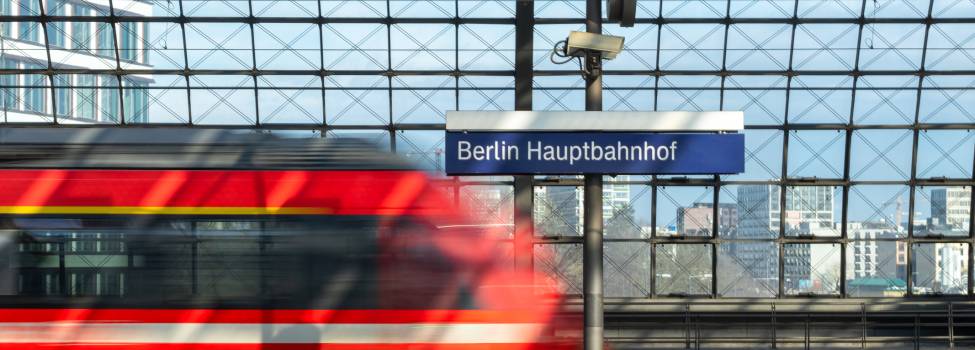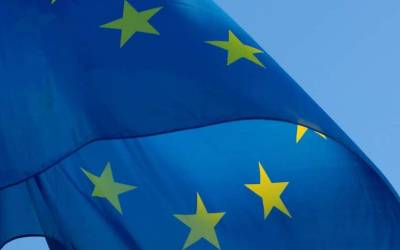Why moving from Asia to Germany for my Master’s was a game-changer

Why moving from Asia to Germany for my Master’s was a game-changer
In spring 2022, I made the decision to uproot my life from the little red dot known as Singapore and move thousands of miles over to Germany for a master's degree. After a decade+ working in marketing technology in Southeast Asia, I sought a change, and Germany presented a number of compelling reasons — educational, professional and personal — that aligned with my long-term goals. Let's break down why I took this leap and why the Land of Ideas proved an ideal choice for me.
Higher education
Starting with the obvious: Germany's education system is renowned for its excellence. A global leader in science, technology and innovation, Germany places strong emphasis on STEM fields and is home to some of the best technical education programs in the world. The automotive industry is a great example of Germany's tech prowess, with big names like BMW, Mercedes-Benz, and Volkswagen leading the way in innovation and often teaming up with universities to offer students real-world experience.
As my career in Singapore organically transitioned from marketing and communications to project management and digital strategy, I realized the need for a degree that would strengthen my expertise in the tech world. After a thorough search, I came across a master's program in Digital Transformation near Berlin that complemented my professional goals.
In Germany, where equal opportunity and meritocracy shape the educational ethos, many public universities charge little-to-nothing in tuition fees, making it highly affordable compared to other western countries. Similarly, private universities in Germany are significantly more cost-effective than their counterparts elsewhere, sparing students from dreaded debt.
Work prospects
As the largest economy in Europe, and the third-largest in the world, Germany has a robust job market across various industries. It's a hot spot for global companies and innovative startups alike, offering tons of opportunities to learn from the best.
Crucial to me was Germany's commitment to work-life balance. Strictly regulated work hours, 30 days of annual leave, comprehensive benefits and employee protections reflect a genuine respect for health, well-being and financial-stability, making it ultra-attractive for people who value labor rights.
Many companies offer flexible work arrangements, including options for remote work, which turned out to be a major plus when I entered the job market. As The Economist reported, countries in northern Europe lead the Global Remote Work Index 2023, with Germany in the top three.
It’s a stark contrast to high-pressure work environments typical in Asia, where intense competition and a relentless focus on work — from early schooling to corporate settings — often result in burnout.
Long-term residency
A key factor in my decision to relocate was the availability of various pathways to long-term residency. After graduation, for instance, you can stay in Germany for over a year with a job-seeker visa to find a job matching your qualifications. And if you’ve worked for roughly two years post-graduation, you’re eligible to apply for permanent residence (depending on your job, work permit or Blue Card, and knowledge of basic German).
For those looking to put down roots here (or with long-term interest in the EU), you can apply for German citizenship if you’ve lived in the country for five years. Dual citizenship is also now allowed for all citizens and foreign residents, as long as your home country permits it.
Quality of life
Having lived in Germany for over two years now — completing my master's and transitioning into full-time work — there are aspects of life here (minor and significant) that I've come to deeply appreciate.
Germany's mandatory health insurance for all residents ensures that healthcare is accessible and affordable, providing a sense of security. The system emphasizes preventive care and ensures that everyone, regardless of income level, can receive the medical attention they need, making healthcare a fundamental right rather than a luxury. Having personally experienced the benefits of this system, I cannot overstate the peace of mind it brings.
The relaxed pace of life, along with a focus on health and well-being, contrasts with the faster-paced, results-driven and consumer-focused cultures of some societies. The emphasis on quiet hours (Ruhezeit) and respect for peaceful neighborhoods — coupled with low crime rates — contribute to an overall sense of calm.
Germany’s natural beauty is diverse and abundant: serene lakes and forests within cities, spectacular mountains (hiking and skiing trails) within hours, and pristine beaches along the North and Baltic Seas. The changing seasons provide a much needed escape from the tropical heat of Asia and bring unique experiences: cherry blossoms in spring, outdoor festivals in summer, pumpkin patches in autumn, and magical Christmas markets in winter.
Equally captivating is the architecture, from grand Gothic cathedrals to fairy-tale castles, steeped in historical significance. Germany's commitment to sustainability is commendable, with its excellent public transportation network, walkable and bike-friendly cities, robust recycling efforts and green initiatives. And might I add, a pet-friendly culture, where dogs are welcome almost everywhere, is a daily dopamine boost for a dog lover like me. ❤️
More than a quarter of residents are immigrants or come from immigrant backgrounds, creating a truly cosmopolitan vibe and diverse community. Last but not least, Germany’s central location within Europe provides ample opportunities to explore the continent (by car, train or flight) and opens up travel to Africa, the Middle East and beyond, fulfilling my lifelong love of exploration.







